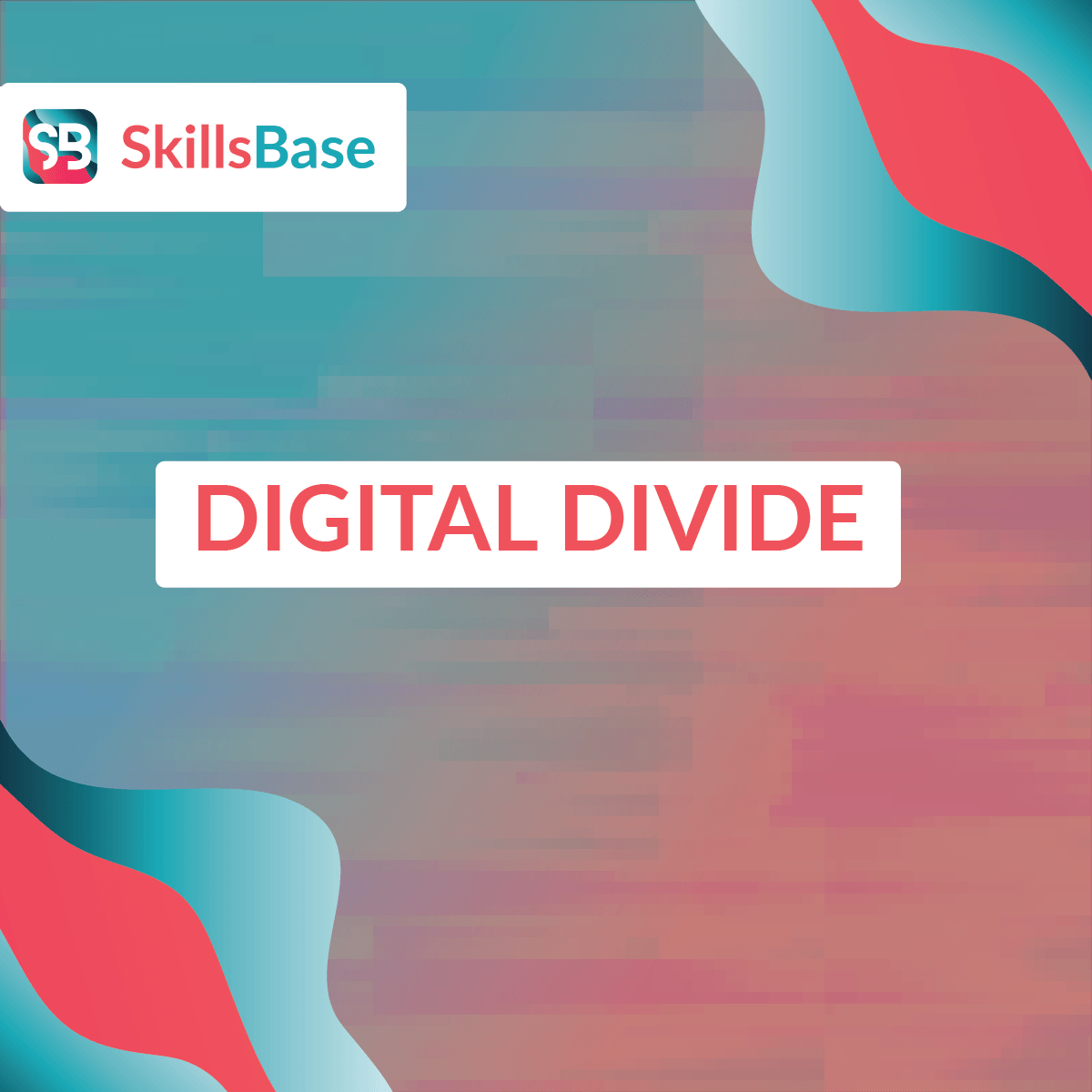The Impact of the Digital Divide and How to Bridge It

What is the Digital Divide?
The digital divide is the unequal access to digital technology as a consequence of a variety of factors. Here, we will specifically be discussing access to internet and fibre infrastructure. The issue of the digital divide is seen most clearly when we look at the difference of access between demographics, class and region.
What’s The Difference Between Homes Passed and Homes Connected?
Homes passed refers to areas where the infrastructure for accessing fibre optic broadband is built but homes and businesses in that area haven’t been connected. Homes connected refers to dwellings that have been connected and are accessing fibre optic broadband.
When looking at initiatives for fibre optic broadband, we see that our goals tend to be centred around homes passed, but this metric doesn’t allow us to see the full picture, and while infrastructure is hugely important, its impact is greatly diminished when areas aren’t connected.
Why Are More Homes Passed than Connected?
Homes passed is an easier goal to achieve because the work is grouped by area, so when you set up infrastructure you only have to do one full installation and those houses can now technically access fibre optic broadband. Connecting homes has a number of unique obstacles that need to be contended with, simply because there is a higher volume of installations that need to be performed. This means more engineers to do the installation, liaising with home and business owners to work around their availability, significant revisits per installation and also taking up more time and money in comparison.
The incentive for connecting homes is lesser outside of populated areas because it’s a huge undertaking for seemingly less financial pay off. Rural areas may need vast infrastructure and specialised installation products and there may only be three houses in a large area. These areas may also have sparse selections of providers, and are limited to what those providers are willing to offer them.
Why Does it Matter?
Career Opportunities
Access to full fibre broadband may seem like a luxury, but as we rapidly move into a more tech based society, access to high quality and reliable broadband is essential. In the UK, we can see that areas of smaller divides have higher rates of people working from home, while areas with a larger divide have less than one fifth of people working from home. Having unreliable, slow internet limits job opportunities for higher paying jobs in areas that have less access, which are generally areas of lower income where access to better opportunities would have a significant impact on their overall quality of life.
Access to Education
In a similar vein, limited internet access means limited opportunities for further education. For a variety of reasons, it is not always possible to pursue education on site, whether this is because of distance, not being able to reduce working hours, or not having access to childcare, we need to expand these opportunities digitally to the people who will benefit the most. Being able to upskill and pursue qualifications online allows people the opportunity to expand their available career paths and work towards more equal opportunities for everyone.
Access to Healthcare
The digital divide also plays a negative role in healthcare access, particularly in rural areas. Telehealth, which is the use of telecommunications in delivering healthcare, public health services and remote health education, is becoming a pivotal part of healthcare that has the potential to reduce health disparities seen between urban and rural areas.
In the UK, the NHS want to lean more into digital healthcare, providing patients with the option to access medical care through video calls and virtual clinics, as well as face-to-face. Offering more options in healthcare helps to access rural areas, but only if fibre broadband is accessible to everyone. The NHS has been limited in their achievement of this goal because of outdated technology and unreliable connections, and access in rural areas is limited due to lack of infrastructure and services.
By upgrading broadband nationally, we can provide faster, more reliable internet so that we can bridge the disparity in healthcare, and take strides towards equal access across the UK.
How Does SkillsBase Help?
SkillsBase is a mobile-first education and training platform that works closely with a range of telecommunications manufacturers and providers both in the UK and Ireland that are working to bridge the digital divide.
The Virtual Buddy
SkillsBase uses artificial intelligence and augmented reality to streamline the process of installation, making it faster while ensuring quality, reducing revisit costs and mistakes. The Virtual Buddy tool is an AI powered solution built to support DexGreen Ltd, a design and manufacturing company that works to bridge the digital divide by providing specialised bespoke solutions to product design. The Virtual Buddy allows engineers to scan installations on the field and will highlight any mistakes in installation along with providing thorough instructions on how to fix it.
The AR Planning Tool
Our AR Planning Tool is another solution we developed to aid engineers with installs. Our AR solution allows you to choose equipment to overlay and place products on the environment to check fits and will measure the area for you. You are also able to create a virtual twin of your MDU, allowing you to plan an optimal route for installation, and keep track of your inventory. We developed our AR Planning Tool as a bespoke solution to our customers’ most common installation pains. We created our solution to address these issues and create a more efficient, cost effective and productive installation the first time around.
Being able to upskill on site and immediately identify issues in installation and solutions in telecom installation, SkillsBase makes the process of installation more efficient, while improving quality and speed. Reducing the costs of installation, as well as reducing the amount of revisits that are needed means that there is more money and more time for telecom companies to expand fibre broadband services nationally. This will also make more complex installation processes in rural areas and rugged terrain less daunting for service providers because SkillsBase gives them the assurance that they have instant access to all the information they need to provide quality services.
You may also like....
Shortlisted for the Industrial Innovation Award at Connected Britain 2025
We’re delighted to share that SkillsBase and Openreach have been nominated for the Industrial Innovation Award at Connected Britain 2025!
Proactive vs. Reactive Maintenance: Discover the Breakthrough Tools Reducing Fibre Optic Downtime
As fibre optic networks expand to meet the growing demand for high-speed internet, maintaining their reliability is...
The Future of Certifications: Discover the Ultimate Digital Assessments for Workforce Readiness
In an increasingly skills-driven job market, certifications and assessments have become more important than ever....




